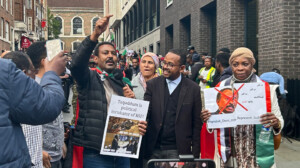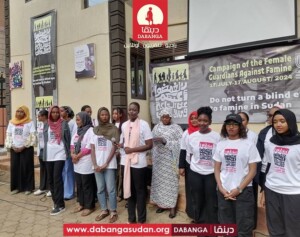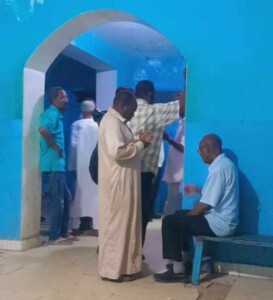Sudan-wide cash shortages hinder business in Atbara
The liquidity crisis in the banks in Atbara in Nile River state over the past two days is affecting business transactions.
 A Sudanese man counts notes after receiving the new Sudanese currency at a central bank branch in Khartoum on July 24, 2011 (REUTERS / Mohamed Nureldin Abdallah)
A Sudanese man counts notes after receiving the new Sudanese currency at a central bank branch in Khartoum on July 24, 2011 (REUTERS / Mohamed Nureldin Abdallah)
The liquidity crisis in the banks in Atbara in Nile River state over the past two days is affecting business transactions.
Residents reported that the Bank of Khartoum apologised to the customers for a lack of liquidity on Tuesday. It has reduced its withdrawal ceiling from SDG1000 ($21) to SDG500 ($10.50) per day, due to lack of liquidity since the beginning of this month.
They pointed out that the lack of liquidity has led to a clear disruption in transactions throughout Atbara, with businesses suffering due to an inability to trade goods for cash.
Over the past few months, the value of the Sudanese Pound has dropped steadily against the US Dollar. Cash solutions in the form of printing new currency were promised in January by Sudanese Prime Minister, Motaz Mousa. The printing of new currency by the Central Bank of Sudan has been necessitated by hyperinflation, coupled with a chronic shortage of hard cash.
Banks across Sudan have limited cash withdrawals, so traders and the public prefer to keep their cash at home, rather than deposit it into banks.
Fuel crisis ongoing
The head of the Energy Committee of the Parliament, El Samani El Waseela said that the current fuel crisis will continue until liquidity improves. He accepted that fuel scarcity has led to the increase of queues, and has also sparked panic among citizens.
According to the El Waseela, the Central Bank of Sudan must provide the foreign currency necessary to import fuel. He called on the ministry to provide reserves to cover the expected demand for oil materials for the summer season and the month of Ramadan.
* As effective foreign exchange rates can vary widely in Sudan, Radio Dabanga bases all SDG currency conversions on the Market Makers Mechanism-determined daily US Dollar rate quoted by the Central Bank of Sudan (CboS).









 and then
and then